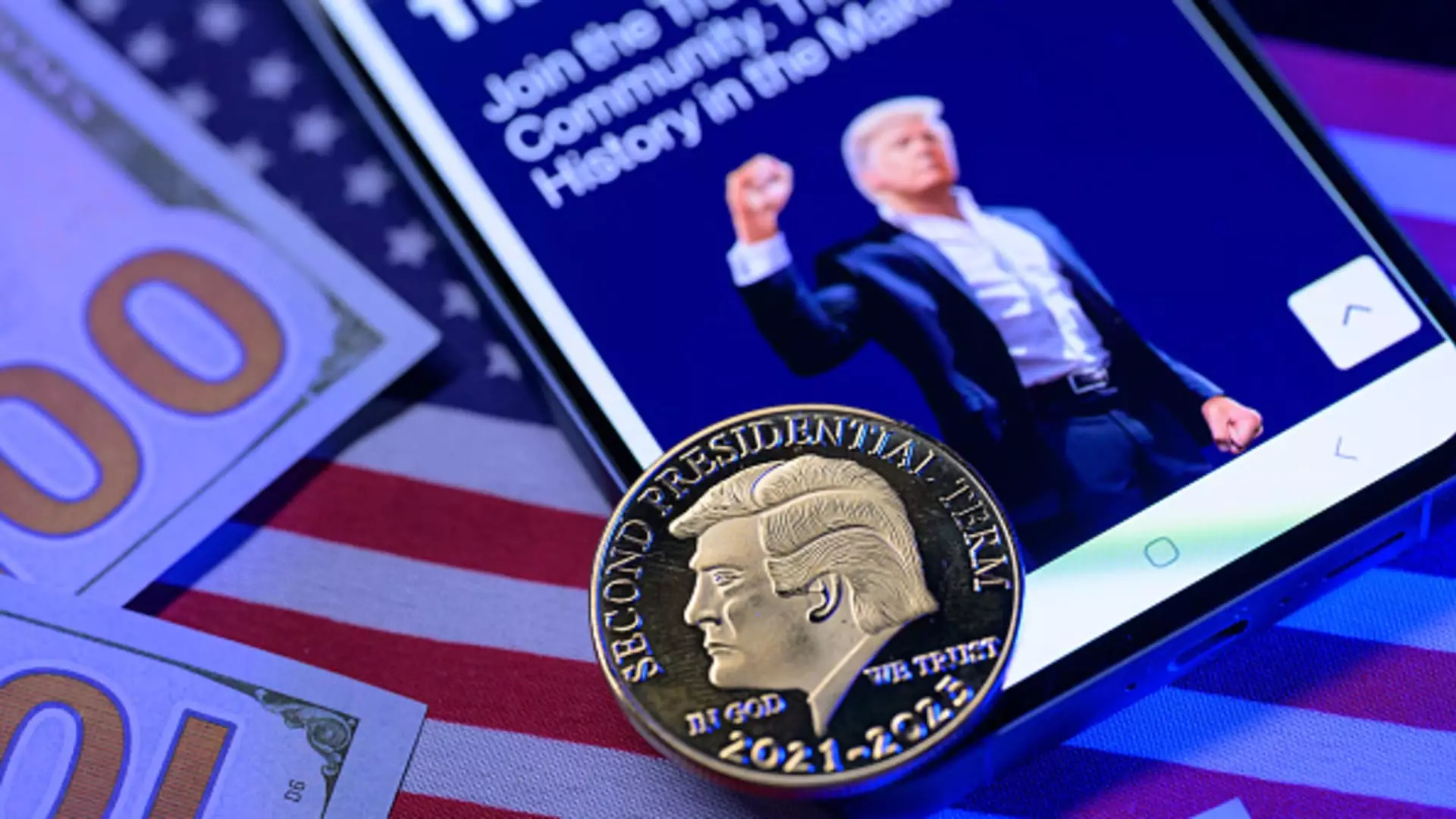As the countdown begins to a much-anticipated dinner hosted by President Donald Trump for the largest holders of the $TRUMP cryptocurrency, the event unveils a fascinating intersection of politics and digital finance. Scheduled for May 22 at Trump’s golf club in Virginia, the dinner is set to welcome the top 220 holders of this meme-inspired token, a move that raises eyebrows and questions alike about the identity of its most significant stakeholders. While the intention may be to celebrate a community of loyal supporters, the reality is layered with intrigue, ambiguity, and opportunism.
The decision to congregate major investors in one room potentially blurs the lines between political allegiance and the pursuit of profit. Cryptocurrency, particularly meme coins, thrive on volatility, speculation, and, at times, anonymity. The pseudonymous nature of blockchain technology allows investors to remain concealed, yet, this obscurity is precisely what fuels suspicion. Who, after all, are these people who have essentially “bought” access to the president of the United States?
The Shadows of Anonymity
Documents from blockchain analytics firms like Inca Digital raise unsettling questions about the demographics of the $TRUMP token’s top holders. The data indicates a significant proportion of wallets linked to non-U.S. entities, generating speculation that foreign investors are wielding influence in an American political milieu. Notably, an analysis has revealed that 19 of the top 25 wallets are likely owned by individuals operating outside the United States, suggesting that foreign interests might be leveraging this cryptocurrency as a backdoor into the political sphere.
One of the most recognizable names associated with the $TRUMP token is Justin Sun, a Chinese crypto magnate who has openly declared his investment of $75 million in the Trump family’s World Liberty Financial token. His involvement not only raises eyebrows due to his international ties but also stirs concerns regarding foreign influence on U.S. policy.
A Wild Financial Ride
The trading history of the $TRUMP coin encapsulates a tale of extreme highs and lows. According to reports, while over half a million wallets have realized a combined profit of $5.2 billion, a staggering number—almost as many—have faced losses amounting to $3.9 billion. This vast disparity highlights the unpredictable nature of meme coins, attracting speculative traders drawn by the allure of quick cash rather than long-term assets.
The $TRUMP token surged to unprecedented heights after its launch in January, boasting a market cap of $15 billion. However, that euphoria was incredibly short-lived, with value plummeting soon after. A brief resurgence occurred upon the announcement of the prestigious dinner, momentarily inflating the market cap to $2.7 billion. These fluctuations paint a picture of a marketplace in chaos—a microcosm of the broader volatility that characterizes the crypto sector in general.
Corporate Interests and Political Consequences
Interestingly, corporate players like Freight Technologies are inserting themselves into this narrative by purchasing significant quantities of $TRUMP tokens. The firm, which has a modest market capitalization of just over $2 million, invested $2 million worth of the meme token to shape U.S.-Mexico trade policy. Such maneuvers raise ethical questions about the commodification of political relationships and the extent to which financial contributions can influence policy-making. It exemplifies how the cryptocurrency landscape can be manipulated for purposes that extend beyond mere investment, veering into potential coercion of political frameworks.
The Regulatory Landscape
Amid this crypto frenzy, regulatory concerns loom large. Senator Richard Blumenthal recently noted the implications of the Trump family’s burgeoning crypto assets, warning that they could open doors for foreign entities seeking influence. As the SEC tightens its grip on cryptocurrency, the quest for clarity around regulations continues to frustrate both investors and watchdogs alike. With personalities like Justin Sun embroiled in civil fraud investigations, the integrity of the crypto market remains precarious.
Moreover, the reluctance of analytics firms like Chainalysis and Elliptic to continue monitoring the $TRUMP token’s trading activity reconstructs the narrative of accountability, leaving a vacuum of oversight that can be difficult to fill. While many celebrate crypto as a tool of liberation, the absence of regulation often lends itself to exploitation—and the dinner with Trump may just be the most tangible manifestation of such exploitation.
The rise and tribulations of the $TRUMP token serve as a fascinating lens into the evolving relationship between digital currencies and the political landscape. As this saga unfolds, the implications aren’t just financial; they might well define the future of political fundraising, influence, and the role of cryptocurrencies in American democracy.


Leave a Reply